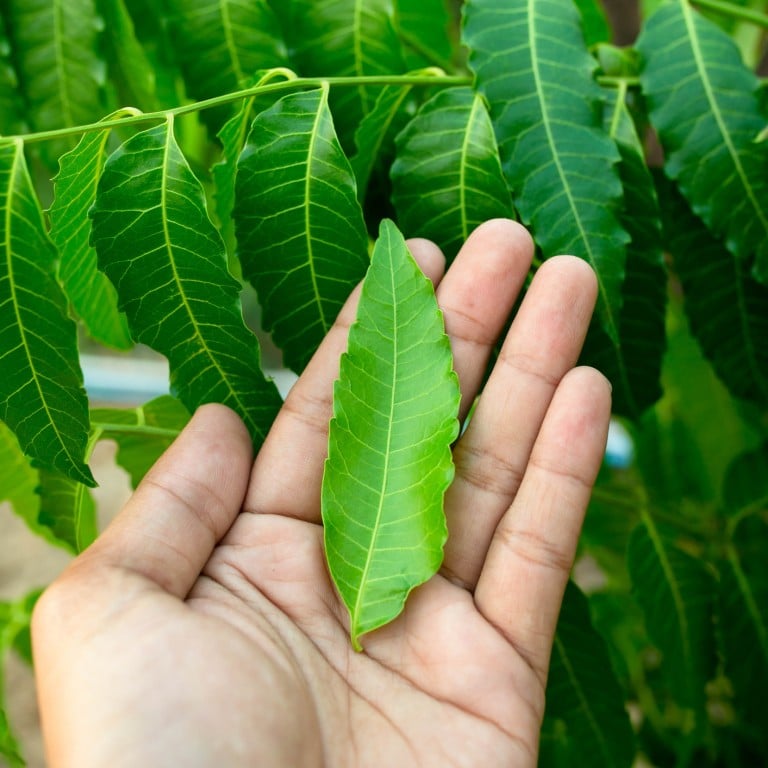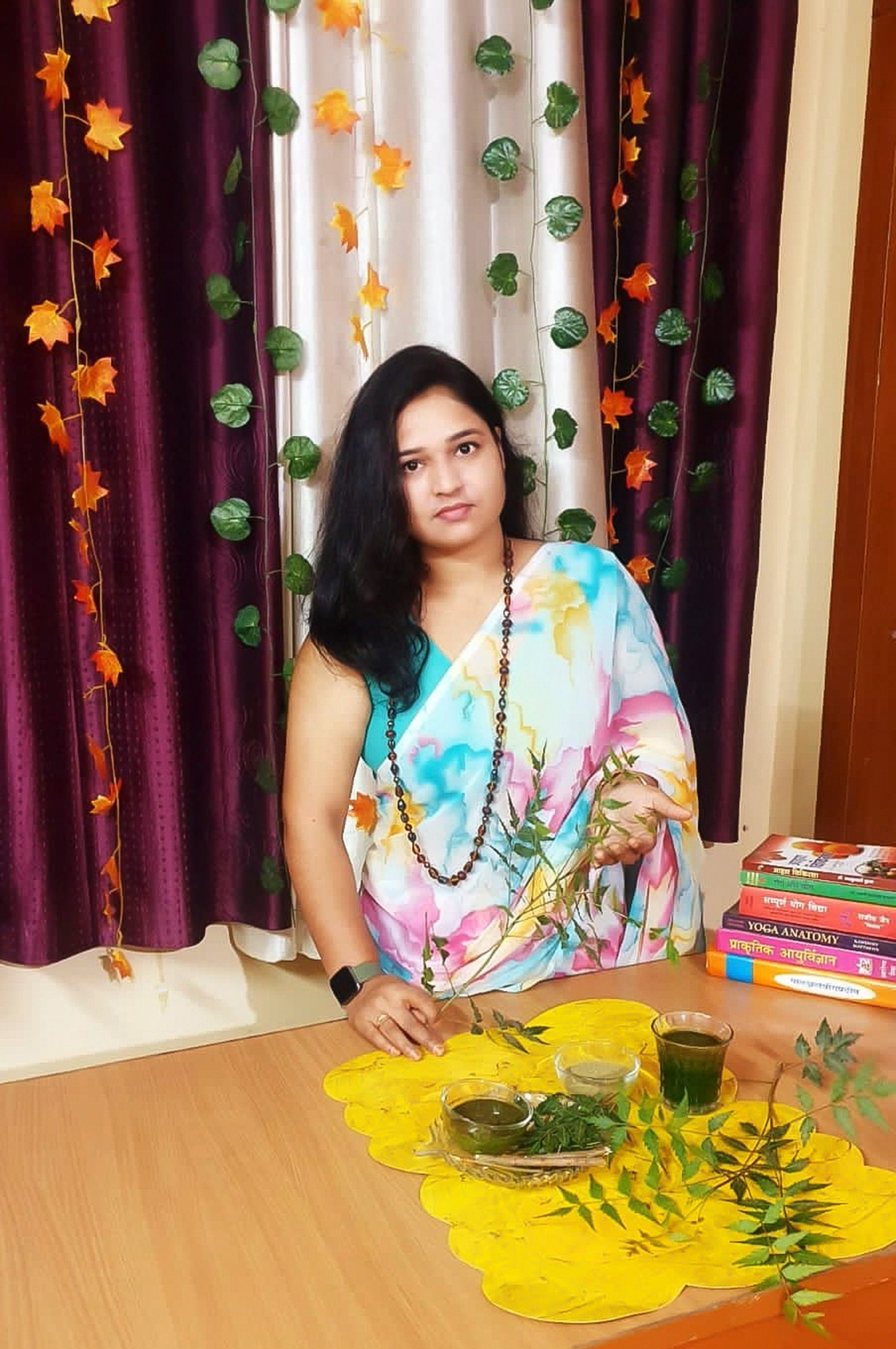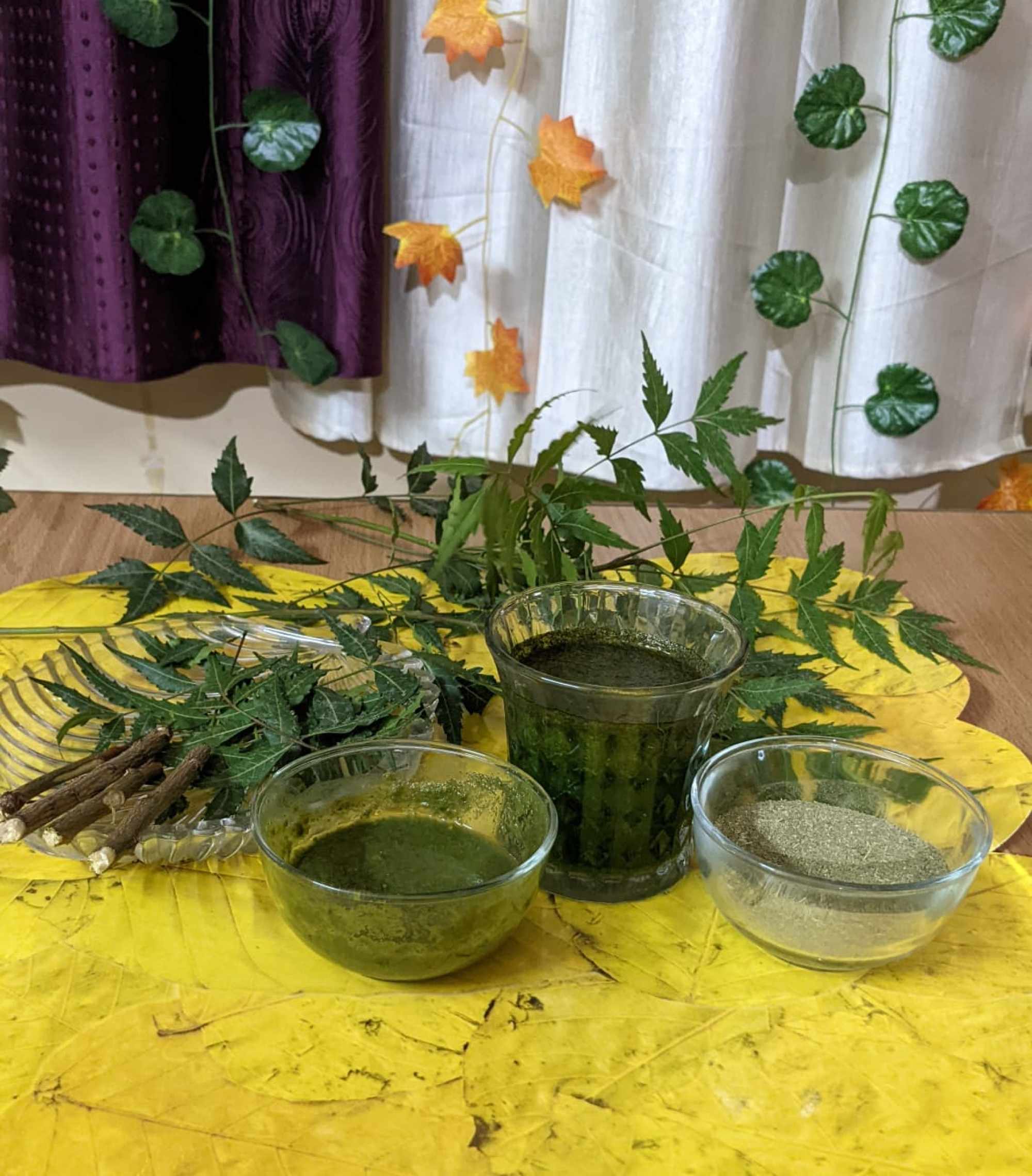
Explainer | What is neem? The health benefits of what Ayurveda calls the world’s most versatile medicinal plant, from boosting immunity to fighting cancer
- Ayurvedic experts have for centuries promoted neem as ‘nature’s pharmacy’, with each of its parts – leaves, bark, flowers – full of potential health benefits
- Used for cleaning teeth, strengthening hair and healing skin wounds, neem has also displayed promise in boosting immunity, and fighting cancer and Covid-19
Known in Ayurveda as “nature’s pharmacy”, the neem tree and its components have been an integral part of traditional Indian medical formulations for almost 5,000 years.
Also called Indian lilac in English, and “neemba” in Sanskrit, the plant – scientific name Azadirachta indica – teems with 130 biologically active compounds, some of which have antiviral and antibacterial qualities, some of which boost immunity, and lots more.
As a child I remember my grandfather – who lived to the age of 93 – not ever having to buy a toothbrush or toothpaste. Every morning he’d snap a twig from a neem tree growing in our courtyard and brush his teeth with it. He would also chew neem leaves to boost his immunity, apply neem oil to his hair, and sprinkle boiled neem bark water in his room to ward off pests and mosquitoes.
He knew what he was doing. Ayurvedic experts have for centuries promoted neem as the most versatile medicinal plant in the world, with each of its parts brimming with health benefits.
“From its bark to leaves, flowers, fruits, twigs, seeds and root, neem is full of health-giving properties,” says Bharti Raghav, a yoga and Ayurvedic expert based in the northern Indian state of Uttar Pradesh.

Neem’s antimicrobial properties make it effective against several types of bacteria, viruses and fungi, Raghav adds.
“Ayurvedic texts describe how neem treats skin disorders, hair problems, enhances appetite, boosts digestion, tackles diabetes, facilitates healing of wounds, relieves nausea and much more.”
What is Ayurveda? History, treatments, doshas explained
Vivek Acharya, a Delhi-based third-generation yoga and Ayurveda expert, says neem is a rich source of antioxidants, which may make it effective in managing cancer.
“Dried and powdered neem has a good shelf life, which also makes it ideal for carrying along while travelling or in places where the tree doesn’t grow. It can be preserved for months without spoilage,” he adds.
Though the tree grows predominantly in the Indian subcontinent, it is now being cultivated in similar climates across the world for people to tap its potent therapeutic powers.

Modern research has also spotlighted neem’s healthful properties, in particular a 1992 report from the US National Research Council called “Neem: A tree for solving global problems” that recognised neem’s medicinal and other values.
The preface of that report is gushing in its praise of neem’s potential: “Neem is a fascinating tree … it seems to be one of the most promising of all plants and may eventually benefit every person on the planet. Probably no other yields as many strange and varied products or has as many exploitable by-products.
“Indeed, as foreseen by some scientists, this plant may usher in a new era in pest control, provide millions with inexpensive medicines, cut down the rate of human population growth, and perhaps even reduce erosion, deforestation, and the excessive temperature of an overheated globe.”
5 immune system superfoods used in Ayurvedic medicine
In the three decades since that review there have been many studies of neem’s potential medicinal value in treating illnesses, from cancer to the coronavirus.
A 2014 study in the journal Leukemia and Lymphoma examined neem leaf extract in treating chronic lymphocytic leukaemia and concluded it “demonstrates clinical efficacy, warranting further investigation as a potential therapy”.
Extract from the bark of the neem tree may help treat and reduce the spread of coronavirus, according to a new study by scientists at the University of Colorado in the US and the Indian Institute of Science Education and Research Kolkata.
The study, published in February in the journal Virology, shows that components of neem bark may target a wide range of viral proteins, suggesting its potential as an antiviral agent against new coronavirus variants.
Eczema sufferer on her all-natural solution to beating her condition
A comprehensive review published in March in Scholars International Journal of Traditional and Complementary Medicine concluded that neem has shown anticancer, anti-fever, anti-inflammatory, antimalarial, antibacterial, anti-fungal, antiviral, anti-parasitic, anti-hyperglycaemic and antioxidant properties, as well as can stimulate the immune system, and that it can boost dental health, skin protection and the treatment of ulcers – with little evidence of adverse effects.
In countries where the neem tree is not grown, its supplements and remedies are widely available online and in natural food stores. Among these product offerings are neem capsules, tinctures, powders, cosmetics, oils, creams, shampoos, mouthwashes and toothpastes.
The many benefits of the neem tree’s parts
Neem twigs: Many Indians chew a neem twig as a make-do toothbrush. According to Raghav, brushing teeth with neem twigs fights germs, maintains the right alkaline balance in saliva, keeps bacteria at bay, tackles gum inflammation, makes teeth whiter, and prevents plaque and cavity formation. Chewing the twig also exercises oral muscles.
Neem oil: Oil extracted from neem seeds is a sought-after ingredient in cosmetics and skin products including soaps, hair oil, face packs and hand washes due to its anti-ageing properties. It can also treat skin diseases and is a potent mosquito repellent. Massaged into the scalp, it can strengthen hair, prevent hair fall and treat dandruff.
Why you need good teeth and how to get a million-dollar smile
Neem bark: The tree’s bark is used for treatment of malaria, stomach and intestinal ulcers, skin diseases, pain, and fever. It can also address dental diseases, combat dental plaque and kill oral bacteria.
“It also helps heal wounds in the oral cavity due to its antiseptic and astringent properties,” Acharya says. “It supports digestive health and accelerates metabolism.”
Neem leaves: Paste made from the leaves is used to treat head lice, skin diseases, wounds and skin ulcers in many parts of Asia. The paste is also used as a mosquito repellent. Neem leaves can be boiled in water and the water strained and stored for use as a potent skin antiseptic. Neem leaf powder can be taken internally and applied externally to the skin for allergies. To make the powder, dry the leaves and blitz them in a blender.
Neem fruit: The fruit is pressed to extract oil to be used as hair rejuvenator or eliminate dandruff and lice. It can also be an effective mosquito repellent and is found in factory-manufactured room fresheners as well.
Neem flower: Ayurveda describes the delicate white neem flower as possessing “cooling” properties, a reason Indians incorporate it in summer dishes to counteract the tropical heat. The flower is used to make ugadi pachadi, a gruel made from neem leaves and jaggery – unrefined cane sugar. The flowers are dried and powdered to make “flower rice”, pachadi (lentil gruel), rasam (lentil soup), dals (lentil curries) and more. They’re also often dry roasted and sprinkled on top of a dish as a garnish.
Although experts generally consider neem safe for use, they caution that it is possible for some people to develop a mild allergic reaction to it. “Do a patch test by rubbing neem powder or oil on the inside of the elbows to check whether the herb works for you or not,” Acharya advises.

